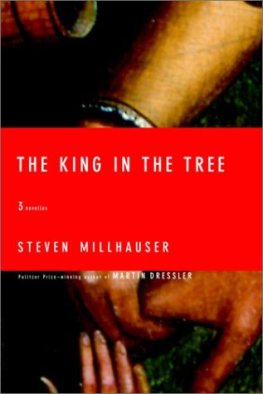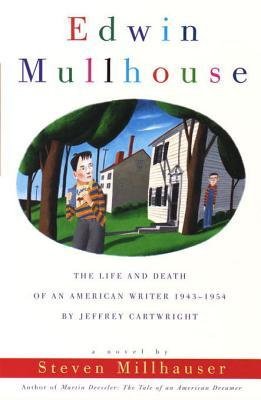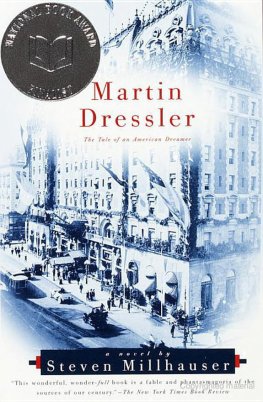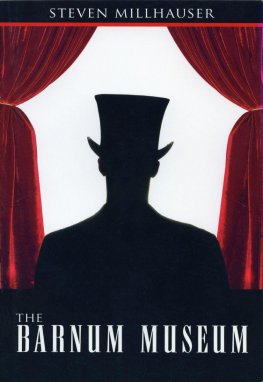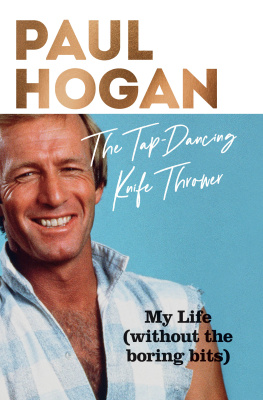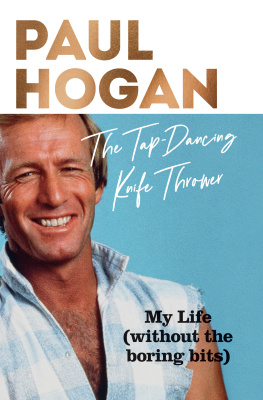Steven Millhauser - The Knife Thrower: and Other Stories (Vintage Contemporaries)
Here you can read online Steven Millhauser - The Knife Thrower: and Other Stories (Vintage Contemporaries) full text of the book (entire story) in english for free. Download pdf and epub, get meaning, cover and reviews about this ebook. year: 1999, publisher: Vintage, genre: Detective and thriller. Description of the work, (preface) as well as reviews are available. Best literature library LitArk.com created for fans of good reading and offers a wide selection of genres:
Romance novel
Science fiction
Adventure
Detective
Science
History
Home and family
Prose
Art
Politics
Computer
Non-fiction
Religion
Business
Children
Humor
Choose a favorite category and find really read worthwhile books. Enjoy immersion in the world of imagination, feel the emotions of the characters or learn something new for yourself, make an fascinating discovery.

- Book:The Knife Thrower: and Other Stories (Vintage Contemporaries)
- Author:
- Publisher:Vintage
- Genre:
- Year:1999
- Rating:4 / 5
- Favourites:Add to favourites
- Your mark:
- 80
- 1
- 2
- 3
- 4
- 5
The Knife Thrower: and Other Stories (Vintage Contemporaries): summary, description and annotation
We offer to read an annotation, description, summary or preface (depends on what the author of the book "The Knife Thrower: and Other Stories (Vintage Contemporaries)" wrote himself). If you haven't found the necessary information about the book — write in the comments, we will try to find it.
Steven Millhauser: author's other books
Who wrote The Knife Thrower: and Other Stories (Vintage Contemporaries)? Find out the surname, the name of the author of the book and a list of all author's works by series.
The Knife Thrower: and Other Stories (Vintage Contemporaries) — read online for free the complete book (whole text) full work
Below is the text of the book, divided by pages. System saving the place of the last page read, allows you to conveniently read the book "The Knife Thrower: and Other Stories (Vintage Contemporaries)" online for free, without having to search again every time where you left off. Put a bookmark, and you can go to the page where you finished reading at any time.
Font size:
Interval:
Bookmark:
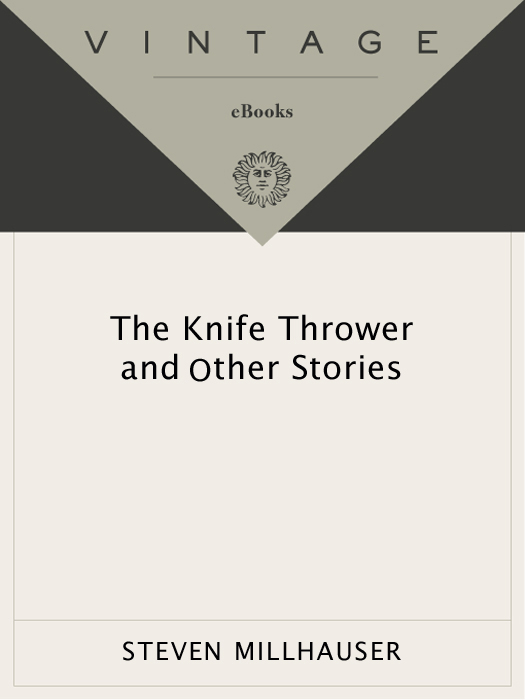
Acclaim for
STEVEN MILLHAUSERs
The Knife Thrower and Other Stories
As sinister as it is fanciful [The Knife Thrower] is Millhauser at his purest.
San Francisco Chronicle
Millhauser draws us effortlessly into the shimmering worlds of his fictions. His writing has a stately quality that is hard to resist.
The Boston Globe
These stories sing with scary mystery [Millhausers] imagination is wonderful to behold.
Entertainment Weekly
Millhauser is perhaps our last romantic, a descendent of Hawthorne and Poe, whose tales of the morbid and the extreme flash a dusky light on the ordinary visible world, all while describing it in preternaturally vivid, coolly elegant prose.
Newsday
[The] prose is beautiful and meticulously crafted, yet always summoning what is just beyond the power of words. [Millhauser is] a master storyteller.
Time Out
These stories are masterpieces of tone and grace.
The Memphis Commercial Appeal
[The Knife Thrower] gives the reader a solid dose of Dr. Mlhausens Fantastical Tonic, producing laughter, wonder, heady confusion and, best of all, a vision of an America we never knew.
Los Angeles Times
Explores our deepest conflicting desires. Youll close the book seeing everything in Millhauser colors.
Boston Sunday Herald
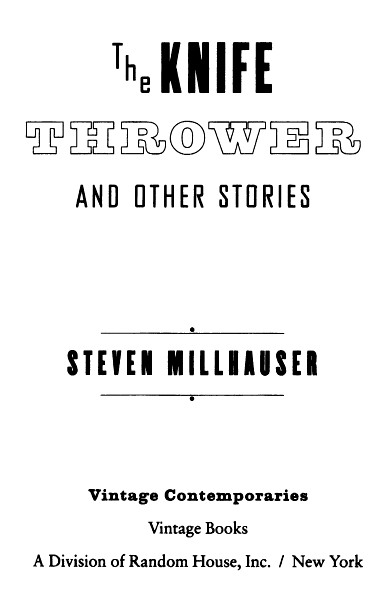
TO STEVE STERN


W HEN WE LEARNED that Hensch, the knife thrower, was stopping at our town for a single performance at eight oclock on Saturday night, we hesitated, wondering what we felt. Hensch, the knife thrower! Did we feel like clapping our hands for joy, like leaping to our feet and bursting into smiles of anticipation? Or did we, after all, want to tighten our lips and look away in stern disapproval? That was Hensch for you. For if Hensch was an acknowledged master of his art, that difficult and faintly unsavory art about which we knew very little, it was also true that he bore with him certain disturbing rumors, which we reproached ourselves for having failed to heed sufficiently when they appeared from time to time in the arts section of the Sunday paper.
Hensch, the knife thrower! Of course we knew his name. Everyone knew his name, as one knows the name of a famous chess player or magician. What we couldnt be sure of was what he actually did. Dimly we recalled that the skill of his throwing had brought him early attention, but that it wasnt until he had changed the rules entirely that he was taken up in a serious way. He had stepped boldly, some said recklessly, over the line never before crossed by knife throwers, and had managed to make a reputation out of a disreputable thing. Some of us seemed to recall reading that in his early carnival days he had wounded an assistant badly; after a six-month retirement he had returned with his new act. It was here that he had introduced into the chaste discipline of knife throwing the idea of the artful wound, the mark of blood that was the mark of the master. We had even heard that among his followers there were many, young women especially, who longed to be wounded by the master and to bear his scar proudly. If rumors of this kind were disturbing to us, if they prevented us from celebrating Henschs arrival with innocent delight, we nevertheless acknowledged that without such dubious enticements wed have been unlikely to attend the performance at all, since the art of knife throwing, for all its apparent danger, is really a tame art, an outmoded artlittle more than a quaint old-fashioned amusement in these times of ours. The only knife throwers any of us had ever seen were in the circus sideshow or the carnival ten-in-one, along with the fat lady and the human skeleton. It must, we imagined, have galled Hensch to feel himself a freak among freaks; he must have needed a way out. For wasnt he an artist, in his fashion? And so we admired his daring, even as we deplored his method and despised him as a vulgar showman; we questioned the rumors, tried to recall what we knew of him, interrogated ourselves relentlessly. Some of us dreamed of him: a monkey of a man in checked pants and a red hat, a stern officer in glistening boots. The promotional mailings showed only a knife held by a gloved hand. Is it surprising we didnt know what to feel?
At eight oclock precisely, Hensch walked onto the stage: a brisk unsmiling man in black tails. His entrance surprised us. For although most of us had been seated since half-past seven, others were still arriving, moving down the aisles, pushing past half-turned knees into squeaking seats. In fact we were so accustomed to delays for latecomers that an 8:00 performance was understood to mean one that began at 8:10 or even 8:15. As Hensch strode across the stage, a busy no-nonsense man, black-haired and top-bald, we didnt know whether we admired him for his supreme indifference to our noises of settling in, or disliked him for his refusal to countenance the slightest delay. He walked quickly across the stage to a waist-high table on which rested a mahogany box. He wore no gloves. At the opposite corner of the stage, in the rear, a black wooden partition bisected the stage walls. Hensch stepped behind his box and opened it to reveal a glitter of knives. At this moment a woman in a loose-flowing white gown stepped in front of the dark partition. Her pale hair was pulled tightly back and she carried a silver bowl.
While the latecomers among us whispered their way past knees and coats, and slipped guiltily into their seats, the woman faced us and reached into her bowl. From it she removed a white hoop about the size of a dinner plate. She held it up and turned it from side to side, as if for our inspection, while Hensch lifted from his box half a dozen knives. Then he stepped to the side of the table. He held the six knives fanwise in his left hand, with the blades pointing up. The knives were about a foot long, the blades shaped like elongated diamonds, and as he stood there at the side of the stage, a man with no expression on his face, a man with nothing to do, Hensch had the vacant and slightly bored look of an overgrown boy holding in one hand an awkward present, waiting patiently for someone to open a door.
With a gentle motion the woman in the white gown tossed the hoop lightly in the air in front of the black wooden partition. Suddenly a knife sank deep into the soft wood, catching the hoop, which hung swinging on the handle. Before we could decide whether or not to applaud, the woman tossed another white hoop. Hensch lifted and threw in a single swift smooth motion, and the second hoop hung swinging from the second knife. After the third hoop rose in the air and hung suddenly on a knife handle, the woman reached into her bowl and held up for our inspection a smaller hoop, the size of a saucer. Hensch raised a knife and caught the flying hoop cleanly against the wood. She next tossed two small hoops one after the other, which Hensch caught in two swift motions: the first at the top of its trajectory, the second near the middle of the partition.
Font size:
Interval:
Bookmark:
Similar books «The Knife Thrower: and Other Stories (Vintage Contemporaries)»
Look at similar books to The Knife Thrower: and Other Stories (Vintage Contemporaries). We have selected literature similar in name and meaning in the hope of providing readers with more options to find new, interesting, not yet read works.
Discussion, reviews of the book The Knife Thrower: and Other Stories (Vintage Contemporaries) and just readers' own opinions. Leave your comments, write what you think about the work, its meaning or the main characters. Specify what exactly you liked and what you didn't like, and why you think so.



